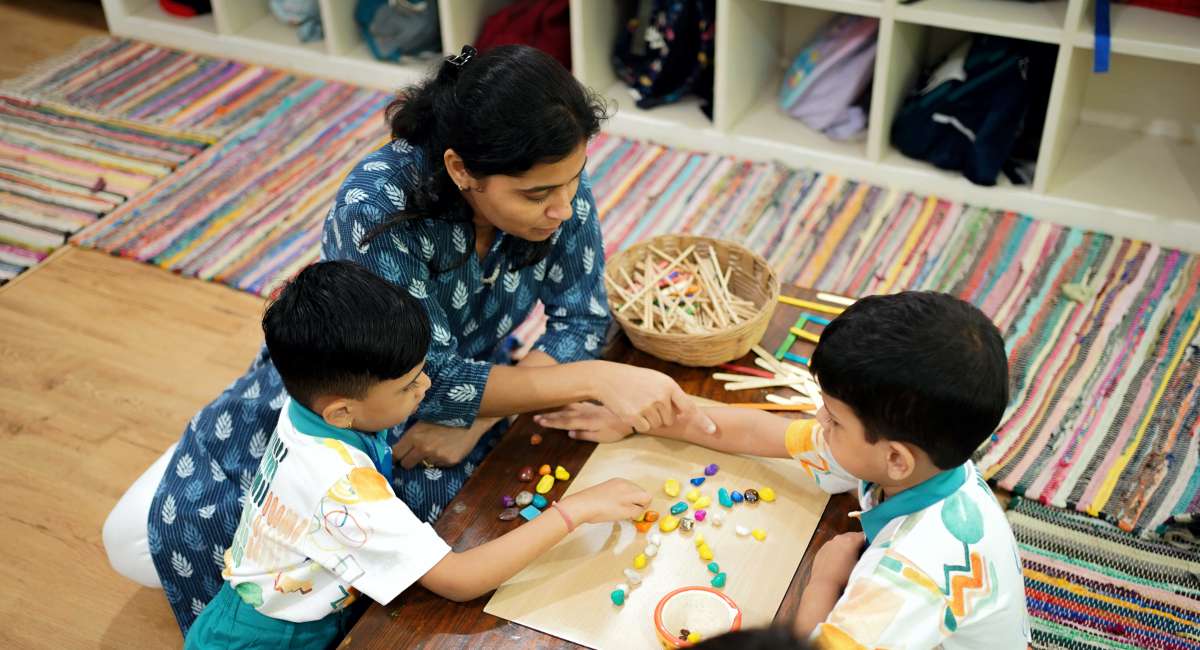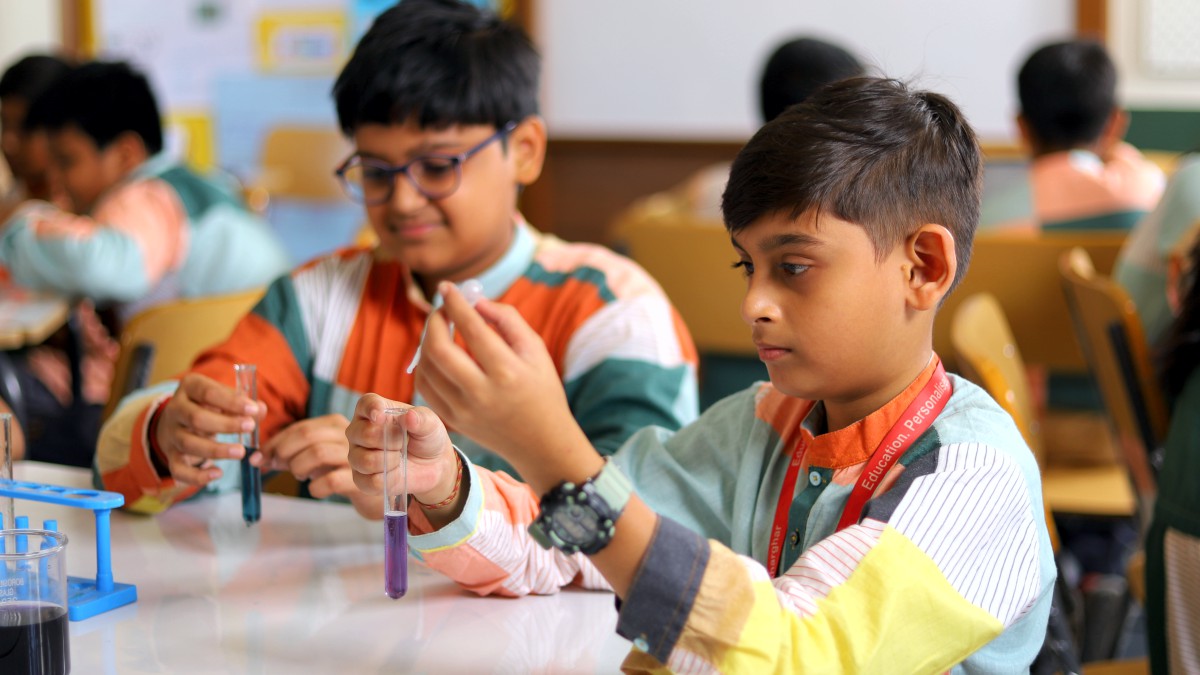Preschool is the first place where a child is exposed to formal learning for the first time. While it’s important to have an age-appropriate curriculum that promotes cognitive development in preschoolers, it is the involvement of teachers in students’ learning activities that helps them acquire the foundational skills to smoothly transition into K-12 school. Early skills like reading readiness, socialising, sorting and sequencing will provide them with the perfect understanding to learn and master complex skills in the future. Preschool teachers play a crucial role in shaping the foundation for lifelong learning.
Here are a few ways in which preschool teachers help in the cognitive development of children.
Environment as the third teacher
Teachers play a vital role in helping children internalize their learning environment and explore the world around them. At Vishwajyot, we embrace a ‘learning through play’ philosophy. Our instructors provide age-appropriate toys and materials that are essential for preschool cognitive skill development, engaging children in activities that stimulate learning. For example, our sorting games help children identify different shapes, sizes, and colors by encouraging them to explore and sort objects based on various characteristics.
We also view the learning environment as the third teacher. By creating a thoughtfully designed, child-safe, and stimulating space, we inspire curiosity and active exploration. The environment itself becomes a powerful tool in motivating children to interact with and understand their surroundings, fostering independent learning alongside guided instruction.
Cultivating love for reading
Many children are not interested in learning to read during their young years, but they may love to be read to. Understanding the impact of good books on young minds, they should be given age-appropriate books to develop a habit of reading. One of the many benefits of teacher-guided reading is that teachers know how to use children’s love for new stories and ideas to foster a love for books and reading. Reading engaging books to them captures the child’s imagination. This way, they would want to explore more books to immerse themselves in stories. First, they are taught to recognise when the book is upside down and how to turn the pages of the book to progress with the story. Gradually, they will understand the words in the books. This approach is known as natural learning. Our thoughtfully designed spaces, such as the Nook—a cozy room with reading niches—and the Reading Tree—a relaxed area where children can unwind while enjoying a book—enhance the charm of cultivating a love for learning. These environments not only encourage reading but also promote the development of lifelong learning habits by allowing children to explore at their own pace in a comfortable, inviting setting. Towards the end of preschool learning, they will start to have their preferences in books.
Communication and Interactions
The most crucial factor contributing to developing communication skills in children is figuring out a reason to communicate. The role of teachers in the cognitive growth of children is significant as they know exactly how to initiate a conversation and motivate children to interact with each other. It is the special bond developed with teachers during these interactions that gets children excited about going to preschool. At Vishwajyot, our teachers make it a point to welcome and interact with each child. The “conversation time” during the daily ritual of circle time provides ample opportunity for children to express their thoughts with teachers and peers. Specially designed arcs, such as loose parts play—where children are encouraged to imagine and create original works—serve as a foundation for sparking meaningful conversations. These interactions not only foster creativity but also enhance communication skills, creating a dynamic learning environment. We also conduct open discussions and encourage students to voice out their perspectives or opinions. There are also several engaging early childhood cognitive activities for kids that are done in groups to promote interactions among peers.
Developing the skill for problem solving
Children are guided by teachers to organise their thoughts, solve problems and learn at their own pace in a prepared environment. They are involved in activities that require them to analyse the situation, build strategies and solve problems. They are also allowed to identify what went wrong and correct their mistakes. Another crucial way to engage the problem-solving ability of your child is to ask them questions. Asking questions like “Which toy should go where?” while cleaning up the play area or “Why should you walk carefully while climbing the stairs?” etc. will help them learn how to solve problems and have a better understanding of their environment. Similarly, teachers play an important role in helping children navigate conflicts with their peers.
Above all, preschool teachers serve as important role models for children. During these formative years, children learn extensively through observation, and since they spend a significant amount of time with their teachers, they naturally absorb behaviors and actions. In addition to parents, teachers play a crucial role in fostering positive behaviors such as teamwork, respect, and kindness. By modeling these values in their daily interactions, teachers help shape the social and emotional development of the children in their care.



